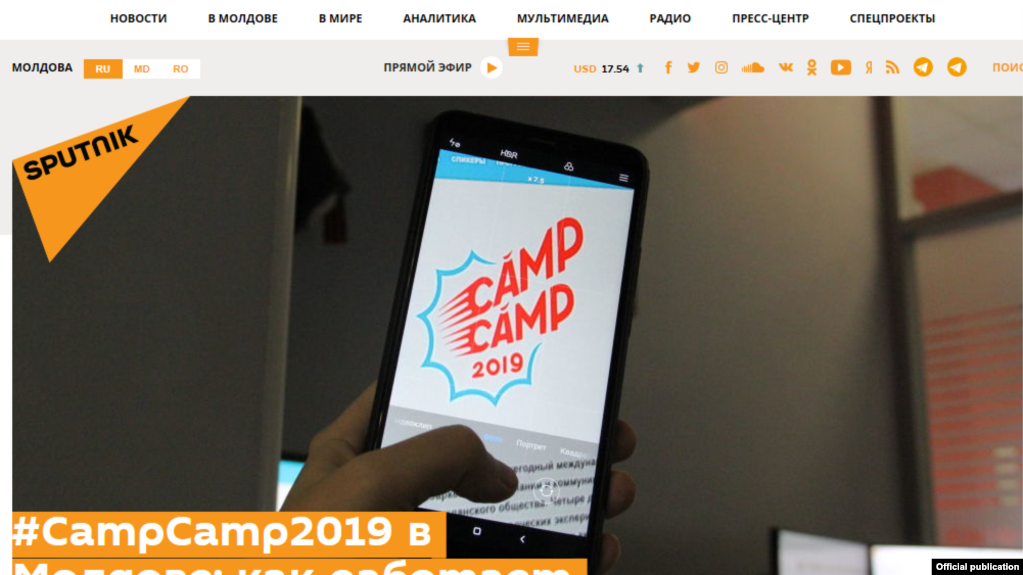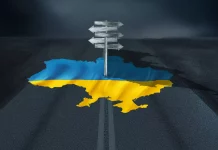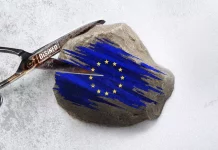
By Elena Derhanschi, for Polygraph
“The annual training exercises for young ‘civil activists’ from 15 countries were held in the capital of Moldova — in an atmosphere of strict secrecy and with American money, volunteers were told about strategies for fighting the authorities, [and] about the organization of and media support for mass protests.”
False
The claims by Sputnik Moldova contradict the verified facts
On October 28, the Russian government-owned Sputnik Moldova news agency published a report headlined “#CampCamp2019 in Moldova: How the Coup Factory Works.”
Sputnik Moldova reporter Alexander Isayev who wrote the piece, claimed #CampCamp2019, which took place in Moldova’s capital Chisinau on October 24 to October 27, was much more than the simple discussion forum its organizers claimed it was.
He wrote that the youth conference was held in “in an atmosphere of strict secrecy” and “with American money,” and that “volunteers were told about strategies for fighting the authorities, [and] about the organization of and media support for mass protests.”
That claim is false.
Details about the media forum, including its agenda and sponsors, along with videos of the speakers’ presentations, are available on the event’s website and via social media.
What actually happened at #CampCamp2019?
#CampCamp2019’s official website says the forum took place in Chisinau and that all of its work sessions over the four days were open to the public. Among the 30 speakers that the agenda listed were experts in fields ranging from marketing to advertisement and media to civic activism.
Chisinau is the third capital to host the forum, after Yerevan in 2018 and Tbilisi in 2019.
In his Sputnik Moldova report, Isayev focused on the claim that events at the forum were held in strict secrecy and that the speakers, instead of their announced topics, “shared their experience in forcing regime change in their countries and fighting ‘Russian influence’.”
Indeed, officially, the organizers did not disclose the venue of the forum publicly, inviting participants personally, through correspondence in social networks. And there are no geotags on those few photos available on Facebook and Instagram with the hashtag #CampCamp2019.
As for the content, there was nothing about regime change or instructions for coups. The official schedule included such topics as the use of data from opinion polls, negotiations with authorities, crowdfunding, PR events for civic activism, as well as numerous workshops for the production of media products.
Video shared on social media by a forum participant shows Christina Vazovski, a native of St. Petersburg who is now the director of an art gallery in London, explaining how to create a podcast.
One forum participant told Polygraph.info that she attended all four days of the event, during which participants were taught how to do presentations, podcasts and video blogs.The participant, a Russian journalist, asked not to be identified. Polygraph.info sought comments from forum organizers, including Arthur Gureu and Maria Sereda. Gureu said he would not comment on something published by Sputnik, and Sereda had not responded to the request by the time of this publication.
Who sponsored #CampCamp2019?
In his Sputnik Moldova piece, Alexander Isayev underlined the fact that the organizer of the forum, the Prague Civil Society Center (PCSC) has received financial aid from the U.S. State Department under the Countering America’s Adversaries Through Sanctions Act (CAATSA) – a law adopted in August 2017 that imposed new sanctions against Iran, Russia and North Korea.
The “About” section on the Prague Civil Society Center’s website states that it is working with civil society in 12 countries, and it lists donors that include the Oak Foundation, the Council of Europe, the governments of Sweden, the Czech Republic, the U.S., UK, and Northern Ireland.
The Prague Civil Society Center’s CEO is Šimon Pánek, who also leads People in Need, a Prague-based NGO, and was one of the activists of the 1989 Velvet Revolution Czechoslovakia that led to the fall of the Communist regime in that country.
Was there any anti-Russian propaganda?
In wrapping up his report for Sputnik Moldova, Isayev concluded that “seemingly apolitical lectures on fundraising and design” appeared to be “decorative wrapping” in a program that was in fact “packed to the gills with lectures on the fight against ‘Russian propaganda’ and ‘Russian influence’, and on the organization of, and media support for, mass protests.” The main “propagandists” at the event Isayev said, were the Radio Free Europe Ukrainian service reporter Vlad Krilevsky, the journalist and poet Lina Goralik, and the aforementioned London art gallery director Christina Vazovski.
Vazovski delivered a lecture titled “The Millennials Invented TV and Radio.” Goralik spoke about the “Benefits and Dangers of Femvertising – Advertisement in Support of Women.” Krilevsky gave a masterclass on creating a video for the social networks. There was no mention in the forum’s agenda of countering Russian propaganda.
By Elena Derhanschi, for Polygraph
This article is written by a Moldovan journalist Elena DERJANSCHI who is on a fellowship at the Polygraph.info, Voice of America’s fact-checking unit.








